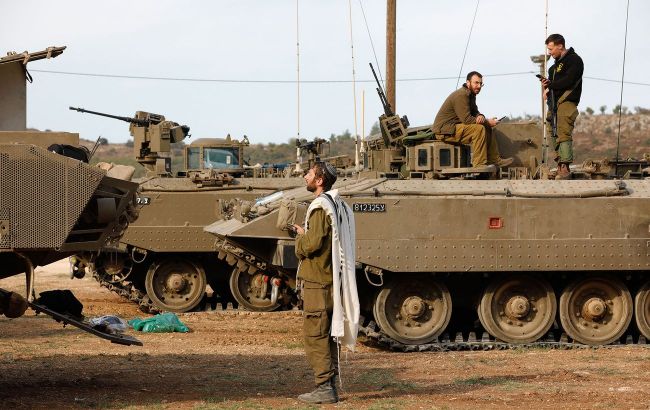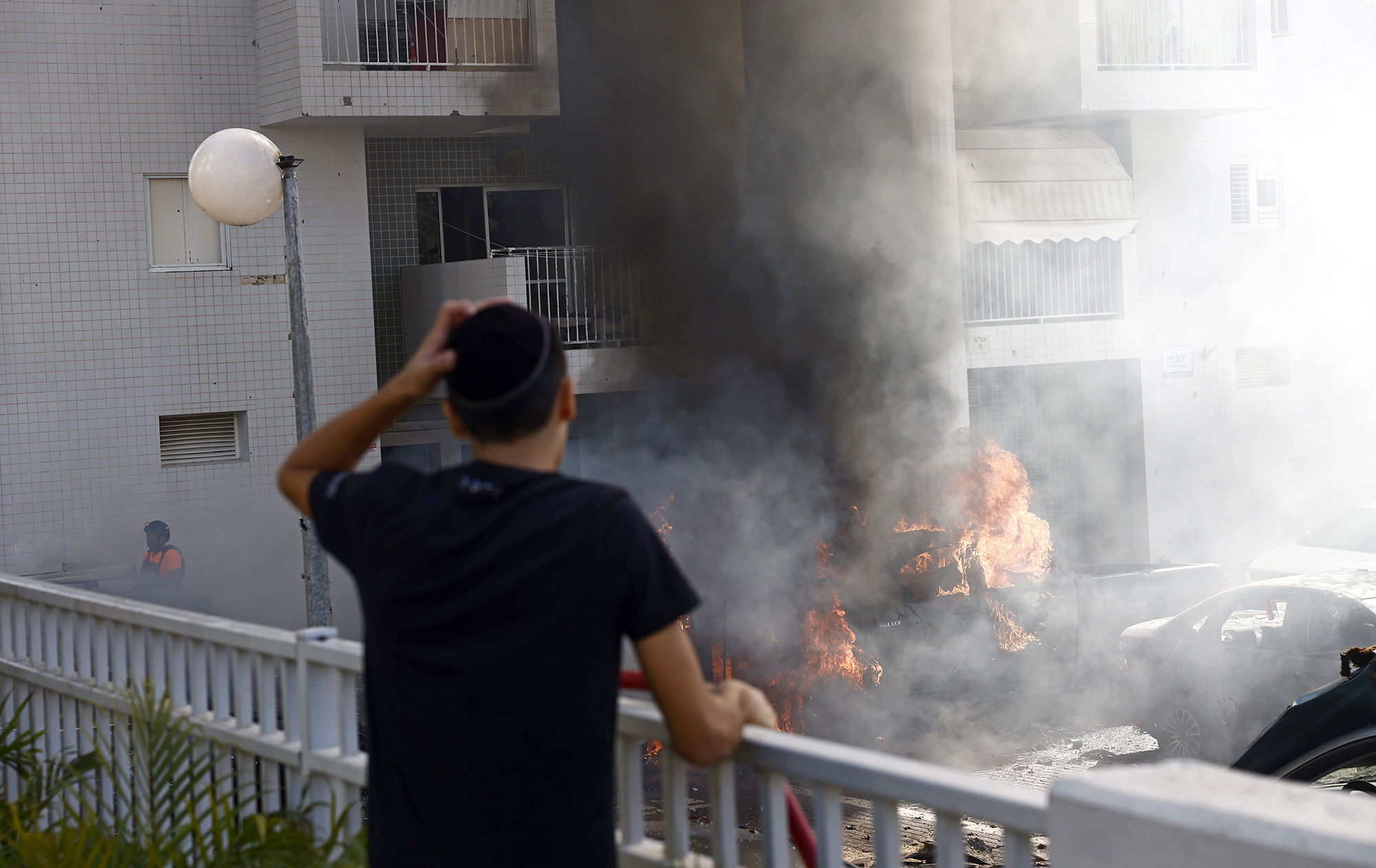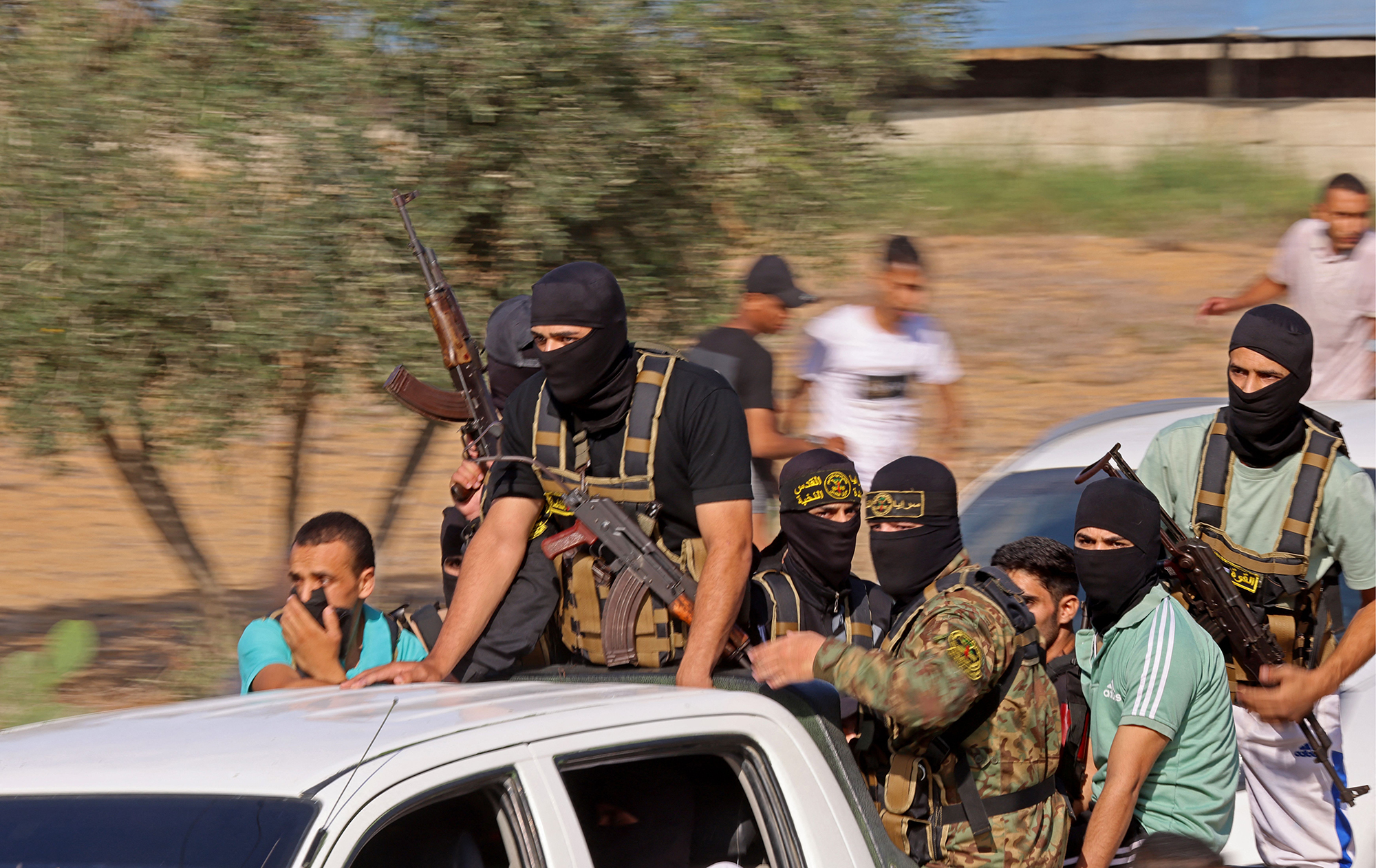Israel's new reality: Is major conflict in the Middle East possible, and how will it affect Ukraine
 Photo: Israeli military (Getty Images)
Photo: Israeli military (Getty Images)
Iliya Kusa, an analyst at the Ukrainian Institute for the Future, shares his opinion on how the Hamas' attack on Israel has affected the situation in the country and the region, the escalation of the confrontation with Iran, and the disruption of Israeli-Arab reconciliation in his column for RBC-Ukraine.
The tragedy that occurred on October 7, 2023, in Israel, will go down in history in several forms: as one of the most successful military operations by Hamas militants against Israel, as the Israeli 9/11, as the biggest political crisis in Prime Minister Benjamin Netanyahu's career, and as a powerful blow to the old Middle Eastern security architecture formed in the 1980s and 1990s as a means of stabilizing the region. This story will continue, and the second phase of the conflict will begin in the coming months: Israel's military response and the potential invasion of the Gaza Strip and the possible involvement of other pro-Iranian forces, such as Hezbollah in Lebanon to the north and pro-government Syrian groups to the east. In any case, analyzing this phase will be necessary later when it unfolds.
For now, let's make some interim analytical conclusions based on what has happened in the last two days.
First – Israel's new reality and change of its position in the region. The unexpectedly successful Hamas attack on Israel and the Israeli military's unpreparedness for such an escalation undermined Israel's image as an impregnable fortress, a militarized state, and a leader in the fight against terrorism. This creates a new reality for Israel in which the country enters into another escalation with Palestinian groups and pro-Iranian forces, but now with an awareness of its own vulnerability.
In other words, Israel's adversaries have come to believe that the country is not as powerful as everyone thought and can be vulnerable even to non-state armed groups. Essentially, we see that the image of Israel, formed after the last war in 1973, is to some extent fading, forcing both regional countries and Israel itself to reconsider their approaches and policies.

Shelling of the Israeli city of Ashkelon (Photo: Getty Images)
Second – disintegration of the old security architecture remnants in the region. The escalation between Hamas and Israel is destroying what countries in the region and the United States tried to achieve in the 1970s-1990s: stabilizing the Middle East conflict by freezing it and attempting to reconcile Palestinian Arabs and Jews. The signing of the Oslo Accords in 1993, leading to the creation of the Palestinian National Authority and the prospect of an independent state, is considered one of the major achievements. However, since then, progress has been halted on both sides and eventually frozen.
The current Hamas attack on Israel negates all these achievements and essentially reverts the region to the period before the Oslo Accords. The security architecture in the Middle East, largely established by the United States and Europe at the end of the Cold War, and updated in the mid-1990s to the early 2000s, has been crumbling over the last 20 years under the pressure of various global issues that question the traditional world order formed after 1945/1991. The Oslo Accords of 1993, the creation of the Palestinian Authority, attempts at Israel-Syria negotiations regarding the occupied Golan Heights, and Israel's unilateral withdrawal from the Gaza Strip in 2005 were all part of this regional order, which is now becoming irrelevant, exacerbating existing conflicts.
Third – tactical strengthening of right-wing forces and weakening of Israeli democracy. As a result of the Hamas attack on Israel, there is expected to be a strengthening of right-wing and right-radical political forces in Israel. Driven by emotions from the tragedy, many people will demand increased security and a harsh approach toward Palestinians, which will boost the political fortunes of parties and movements that have always advocated aggressive and radical anti-Palestinian positions. In turn, this will pose another challenge to the prospects of forming a stable Israeli democracy. These discussions have been ongoing since the rise to power of the right-radical Netanyahu government last year, known for its discriminatory and even racist approaches to the Palestinian issue.
On the other hand, in the long term, when the situation stabilizes to some extent, and less emotional discussions about Israel's future development begin, the political and ideological divide between right-wing and left-wing forces in the country will grow. The Hamas attack has reminded many that the Palestinian issue is still unresolved, and there are no answers on how to solve it. This is directly related to the future project of Israel: whether the country intends to build an ethnonational state with a Jewish character with questionable democracy and freedom, or if it will be a free multiethnic democracy where the rights of all people are respected. This depends on the fundamental approach to the creation of an independent Palestinian state.
Fourth – intensification of regional confrontation with Iran. While Iran's role in the planning and execution of the Hamas attack is still unknown, it is no secret that Iran is one of the main external sponsors of the militants. Tehran has long used
Hamas as an instrument in its hybrid war against Israel, a conflict that has been ongoing for over 30 years, mostly on the territory of third-party states. If Israel now decides to launch direct strikes against Iran in response to the Hamas attack, it could lead to a regional war with negative consequences for the Middle East.
In any case, the Hamas attack already marks another round of escalation in the confrontation between Israel and Iran, as pro-Iranian forces have indicated their readiness to join a war with Israel if it invades the Gaza Strip. This will either result in a destabilizing regional war that forces the United States and its allies to respond to related challenges (increasing the likelihood of their desire to freeze the war in Ukraine), or the formation of a new status quo of active containment between Israel and Iran mediated by regional states, such as the Gulf monarchies and Egypt.

Hamas militants (Photo: Getty Images)
Fifth - freezing of normalization of relations between Israel and the Arabs. It is not excluded that the Hamas militants were pushed to attack by the process of rapprochement between Israel and the Arab Gulf monarchies, especially Saudi Arabia. A political agreement between Israel and the Arabs mediated by the United States could have shifted the Palestinian issue to the background, turning it into a bargaining chip, as happened during the agreements to establish diplomatic relations between Israel and Morocco/UAE/Bahrain during the time of Donald Trump. Furthermore, it would have created a basis for the formation of a potential situational coalition of Israel-Arab monarchies Jordan/Egypt, which could have restrained Iran in the interests of the United States. The Hamas attack potentially puts this process on hold because many Arab countries are forced to support the Palestinians, as they sympathize with them, and have long demanded concessions from Israel on this issue in exchange for normalization.
Moreover, the right-wing Israeli government under Netanyahu did not contribute in any way to reconciliation, and for many regional states, it remained toxic and too aggressive, which also influenced these countries' reaction to the tragedy on October 7. Thus, the Hamas attack in perspective undermines U.S. efforts to bring Israel and the ruling elites of Arab countries closer.
The situation in Israel is unlikely to have an immediate impact on Ukraine. Ukrainian and Middle Eastern policies of the United States are different tracks and do not directly depend on each other. However, if the escalation transforms into a regional war, it may lead to an increase in oil prices (which would benefit Russia), worsen the socio-economic situation in Europe, trigger a new wave of refugees from the Middle East, and increase the desire of Europeans and Americans to freeze the war in Ukraine through a ceasefire to avoid spreading their resources across multiple fronts.
However, this depends on how the situation develops further, and there are many unknown factors that currently affect it, such as the format of Israel's military operation in the Gaza Strip, the involvement of Lebanon's Hezbollah and pro-Iranian forces in Syria in the war, the prospects of anti-Israeli uprising in the Palestinian territories of the West Bank, Iran's involvement in the war with Israel, and the reaction of the United States.

